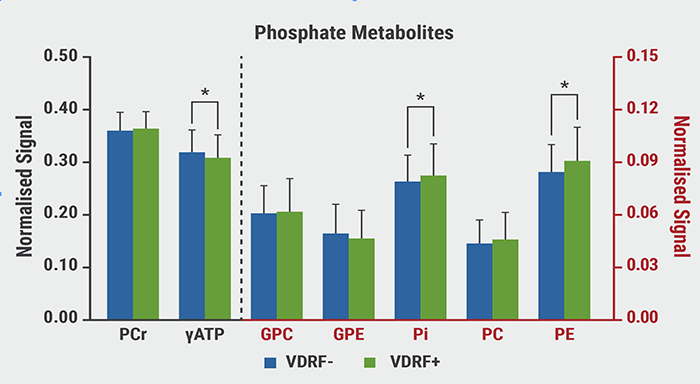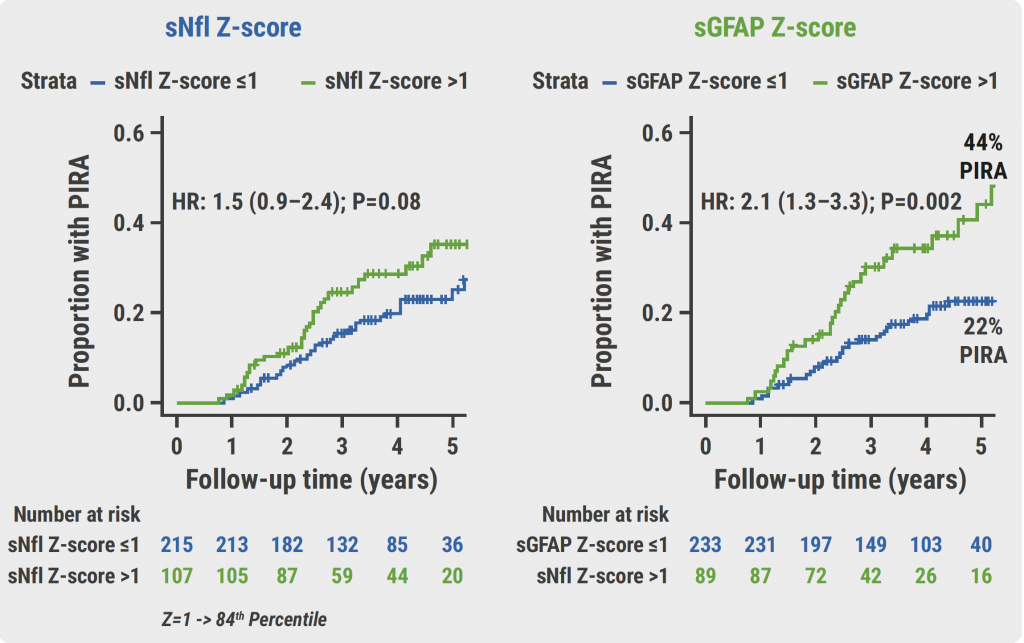
Automatisch gegenereerde beschrijving" /> These data were presented at the European Committee for Treatment and Research in Multiple Sclerosis ECTRIMS meeting, held in Amsterdam, the Netherlands, from 26-28 October 2022 [1].
Teriflunomide is a disease modifying therapy (DMT) indicated for the treatment of remitting relapsing forms of MS. The post-authorisation safety study UPAS 19610 assessed risks of adverse events of special interest associated with teriflunomide use in a real-life setting. A total of 81,620 patients, 72% of whom were women with a median age of 40-43 years old, were included in the study; 22,324, or 27%, were treated with teriflunomide and included in the analysis. The available data in the study spanned from 2013 to 2021. The entire study cohort included 36% of patients newly treated with the DMT after the date of teriflunomide reimbursement and 64% of prevalent users of DMT. The researchers could not find any evidence of long-term adverse events due to prolonged use of teriflunomide.
Northernconnectionsms.org
Medicom spoke with Melinda Magyari, MD PhD, Associate Professor of Neurology Danish Multiple Sclerosis Center, Copenhagen University Hospital, Denmark about her presentation.
Medicom: What were the take-home messages from your data presented?
“This is one of the first post authorisation safety studies requested by the European Medicines Agency, and it's a very large study. Compared with earlier studies which only included about 4,000 patients, we included more than 22,000 patients treated with teriflunomide from different countries, and we aimed to answer the question of whether teriflunomide was associated with adverse events of specific interest over a longer period of time.
In this study, the follow-up time was around 4 years, and even with this much larger cohort, and with an extended period of follow-up, we could not show any higher risk of adverse events of special interest -which were selected a priori- compared with those patients treated with other platform therapies or high efficacy disease modifying therapies. There were simply no specific adverse events that popped up at a low frequency.”
Medicom: There were no signals?
“No, there were no signals, which was also expected. The results we found supported the previous clinical trials that reported, there is a low frequency of peripheral neuropathies. Although we did observe some elevated liver enzymes in certain individuals, the frequency was consistent with earlier reports, so nothing unexpected. We feel that this data is now very solid and is very reassuring for our patients.”
Medicom: What are the implications now? Does this change the status for regulatory purposes?
“I don't think so because teriflunomide has been used as first-line treatment for some time now, as a moderate efficacy treatment in many countries. However, even if the regulatory procedures are not affected, it is very important to collect this sort of data from big real-world studies using administrative databases, but also nationwide population-based registries. This is really important because randomised controlled trials only follow patients up until the trial ends. Following patients on treatment for longer periods will allow us to detect patterns in late-emerging adverse events, for example, which is essential for informing future studies. Naturally, we are actually very happy that we didn't find any signal in this large population with a substantial follow-up period; we did not find any particular risk the patients may have been exposed to.”
Medicom: What are some of the next steps that will be taken to understand what the long-term effects might be? Is there going to be a longer follow up?
“No, not for teriflunomide. The European Medicines Agency performed a power calculation to define the number of patients that should be included to reach a statistical sufficient power. The data we report here included many more patients, than the EMA suggested. The median follow-up time of 4 years was deemed sufficient. We therefore feel that the data for teriflunomide are now complete. However, the same type of post-authorisation safety studies are being conducted for each of the newly approved drugs in MS. Therefore, there are some drugs which have been followed for more than 10 years.
For this story, the next step is, of course, will be to publish the article. We are very curious what the referees’ comments will be. One of the benefits of this particular study was a fantastic collaboration between different data sources, all coordinated by the International Prevention Research Institute in Lyon. They provided great statistical expertise.”
Medicom: Are there any other comments you would like to share with your physician colleagues?
“Yes. I think this shows the importance of observational studies and goes even further by showing the importance of big data. It is not only enough to have the data sources, but you really have to be careful with how the statistics are calculated. We have to stay highly critical and employ robust techniques in our analyses, because the results can have profound implications for our patients.“
- Magyari M, et al. Long-term safety of teriflunomide in multiple sclerosis patients: results of prospective comparative studies in three European countries. Abstract P738, ECTRIMS 2022.
Copyright ©2022 Medicom Medical Publishers
Posted on
Previous Article
« NMOSD: true AQP4 seroconversion is rare Next Article
Gene expression profiles predict response to atezolizumab + platinum-etoposide in eSCLC »
« NMOSD: true AQP4 seroconversion is rare Next Article
Gene expression profiles predict response to atezolizumab + platinum-etoposide in eSCLC »
Related Articles

June 16, 2021
Dysmetabolism may drive MS progression

November 8, 2019
Induction therapy over treatment escalation
© 2024 Medicom Medical Publishers. All rights reserved. Terms and Conditions | Privacy Policy

